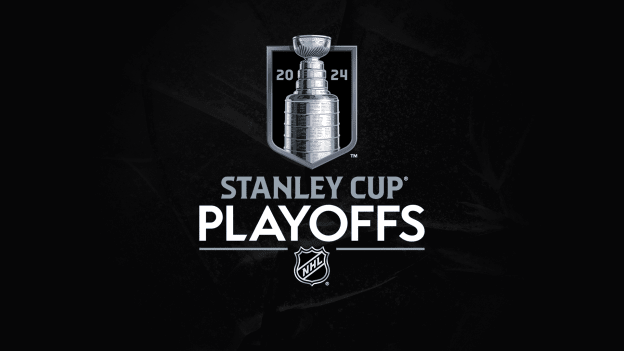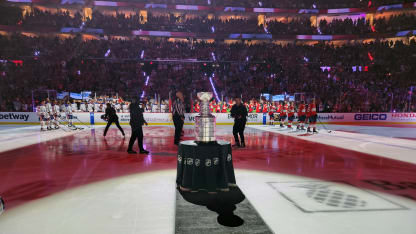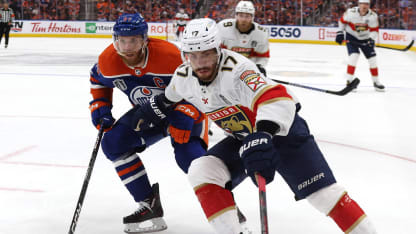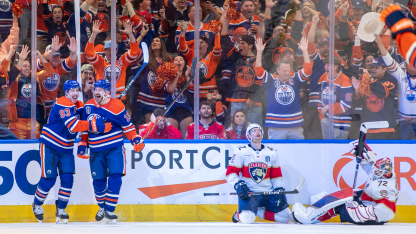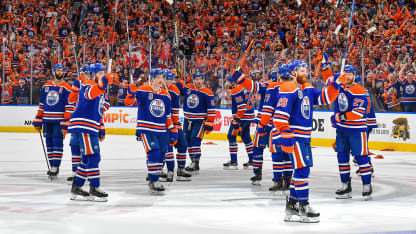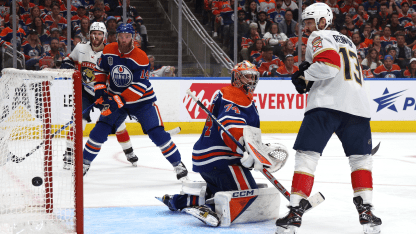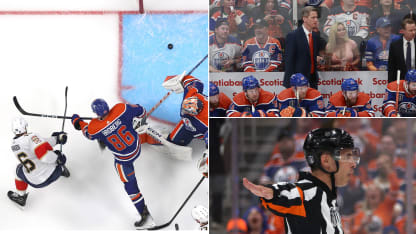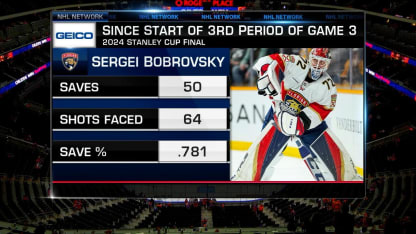EDMONTON -- Scoring first won’t exactly guarantee victory in Game 7 of the Stanley Cup Final.
But it sure wouldn’t hurt.
In each of their three consecutive wins to bounce back from a 3-0 deficit against the Florida Panthers and force a deciding Game 7 at Amerant Bank Arena on Monday (8 p.m. ET; ABC, ESPN+, SN, TVAS, CBC), the Oilers were first onto the scoreboard.
It is far from a foolproof formula, however, as their opening goal in Game 2 still resulted in a 4-1 loss. But it is still a better blueprint than the alternative.
“Anytime you score first, one, it calms a lot of jitters,” Edmonton coach Kris Knoblauch said prior to the team’s departure Saturday. “It also forces the opposition to open things up a little bit more and maybe not play with as much defensive structure as they would like, because they’re trying to get back in the game and forcing to score that next goal.
“So it kind of alleviates a little bit of pressure on your team. But I don’t know what the records are when one team scores first as opposed to the other, but it just definitely allows you to play your game.”
For the record, the Oilers are 3-1 in this series when scoring first. In these Stanley Cup Playoffs, they're 13-5 when scoring first and 2-4 when the opposition scores first.
Perhaps more importantly, Edmonton is 5-0 when facing elimination and has scored first in each of those games. The Oilers are also 3-0 when the opposition faces elimination, and have scored first in all those instances as well.
Of course, what matters most Monday isn’t who scores first but who ends up scoring most to earn the right to hoist hockey’s Holy Grail.
“Going into Game 7, both teams are going to be very desperate, hardworking," Knoblauch said. "But sometimes when you are more desperate and you work harder, sometimes there’s more mistakes. Which, when there’s mistakes, that’s usually how the goal chances occur. So going into Game 7, I can’t really expect what kind of game it’s going to be.
“I just know that our players are going to be excited for it, loving the challenge. They’ve been enjoying this, the whole process.”
And he said that includes being down 3-0 in the Stanley Cup Final, as well as trailing the Vancouver Canucks 3-2 back in the second round, when Edmonton responded with a 5-1 win at home in Game 6 and a 3-2 victory on the road in Game 7.
“We’ve been through some difficult times. We had two elimination games against Vancouver and I have a lot of confidence in our team on how they responded and played in those games,” Knoblauch said. “And when we got in the situation of being down 3-0 against Florida in this series, I saw a very confident group where there’s no panic, no desperation, just a very focused mentality.
“So I like where our team is. I liked our team where they were when it was down 3-0 and I definitely like where they are now.”
The question is, which Oilers will show up in Game 7? The ones who were outscored 11-2 over the first eight periods of the series, or the ones who plowed ahead to a goal differential of 20-5 over the past 10 periods?
“I’m not sure really what to expect,” Knoblauch said. “The first two games and the first two periods of the third game, we were very unfortunate not to score goals and a lot of that has to do with luck, a lot of that has to do with goaltending, but I thought we had enough scoring chances to put up more goals than we did.
“And there was only a certain amount of time where we were going to be held off the score sheet for as long as we were. And that kind of changed at the end of Game 3. In the third period, we were able to score a couple goals there and it led to a huge outburst in Game 4.”
So far, that has proven to be a pivotal point in the series; the Panthers have yet to claw back the momentum the Oilers gained on the way to an 8-1 victory in Game 4 that helped pave the way to becoming just the third team in NHL history to force a Game 7 after falling behind 3-0 in the Cup Final.
“Now, did I think we had enough scoring chances to score eight? No,” Knoblauch said. “But I think things usually work out and we capitalized on more chances than we usually would in a typical situation like that.”

